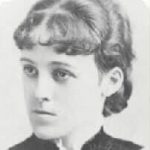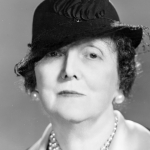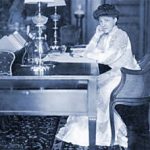When I visit the home of a historical figure, the thing I’m looking for is sense of that long ago human being. I want to feel the very presence of the person, imagine him moving through the rooms, see her puttering in the garden or taking a book off the shelf to read. Edith Wharton… [Read More]
Edith Wharton Safe at Home – The Mount in Lenox, Massachusetts is a Place Worth Visiting!
Work in Progress #21: How My Emily Post Biography Is a Bit Like… Edith Wharton: The Sequel!
Sequels are very popular these days, which is not good news for historical biographers. Our subjects tend to die at the end of the story. When I set out to do a biography of Emily Post three years ago, I certainly wasn’t thinking of the book as a sequel to Edith Wharton. No one was… [Read More]
The Haunting Quality of Edith Wharton
In her insightful article “Why Edith Wharton Haunts Us Still,” Anne Kingston speculates about why so many novelists these days are being compared to Edith Wharton. As Kingston observes, we’ve never stopped being obsessed by the very wealthy or by people trying to claw their way up the social ladder and Wharton is the master… [Read More]
Work in Progress #20: Are You Finished Yet With Your Emily Post Biography?
“Are you finished with that book you’re working on yet?” It’s a question I get asked over and over again. I suspect that, lurking behind that question are other unspoken ones, like “Do you perhaps have procrastination issues?” or “Are you really writing a book or just putting us all on?” It’s hard to explain… [Read More]
Work in Progress #19: Warming Things Up For My Emily Post Biography
As I begin chapter 11 of my Emily Post biography and survey the material I have to work with, it all looks a little cold to me. It’s the 1930s, and the pinnacle moment of Emily’s life (the publication of her etiquette book) took place in the last chapter. Now I have to figure out… [Read More]
Work in Progress #18: The Moving Light at the End of the Tunnel
I am three quarters of the way through my Emily Post biography…maybe (dare I hope it???) even further. I can see the light at the end of the tunnel. Except for the fact that writing a longer piece always goes slower and slower the further I proceed because I realize with every sentence I write… [Read More]
Work in Progress #17: A Quote File
I keep a quote file on my desktop where I can record interesting tidbits from the things I read. I’ve developed a list of categories to file them under so that I can access them when a particular subject comes up in a piece I might be working on: “aging,” “being/becoming,” “freedom,” “history-writing,” “self,” “superficiality,”… [Read More]
The Writing Mind of Edith Wharton
The Atlantic magazine neatly bookended Edith Wharton’s writing life. It was in the pages of that prestigious journal that, in 1880, her first poems appeared in print. In 1933, four years before her death, that same journal published an article entitled “Confession of a Novelist” in which Wharton looked back over her prolific writing career… [Read More]
Edith Wharton Teaches English
As I mention in my biography (pp. 66-67), an early short story Edith Wharton wrote called “The Line of Least Resistance” caught the eye of Henry James, a writer she was dying to meet. It was the beginning of a long friendship between “The Master” (as James was known) and the up-and-coming Edith. That same… [Read More]
A Thoroughly Dislikable Character
Undine Spragg was one of the most dislikable heroines Edith Wharton ever created. This social “swell,” star of the novel, The Custom of the Country, ruthlessly trampled over family, friends, and enemies alike in her quest to rise as far as possible above her humble Apex, Kansas roots. There was hardly a redeeming word to… [Read More]











